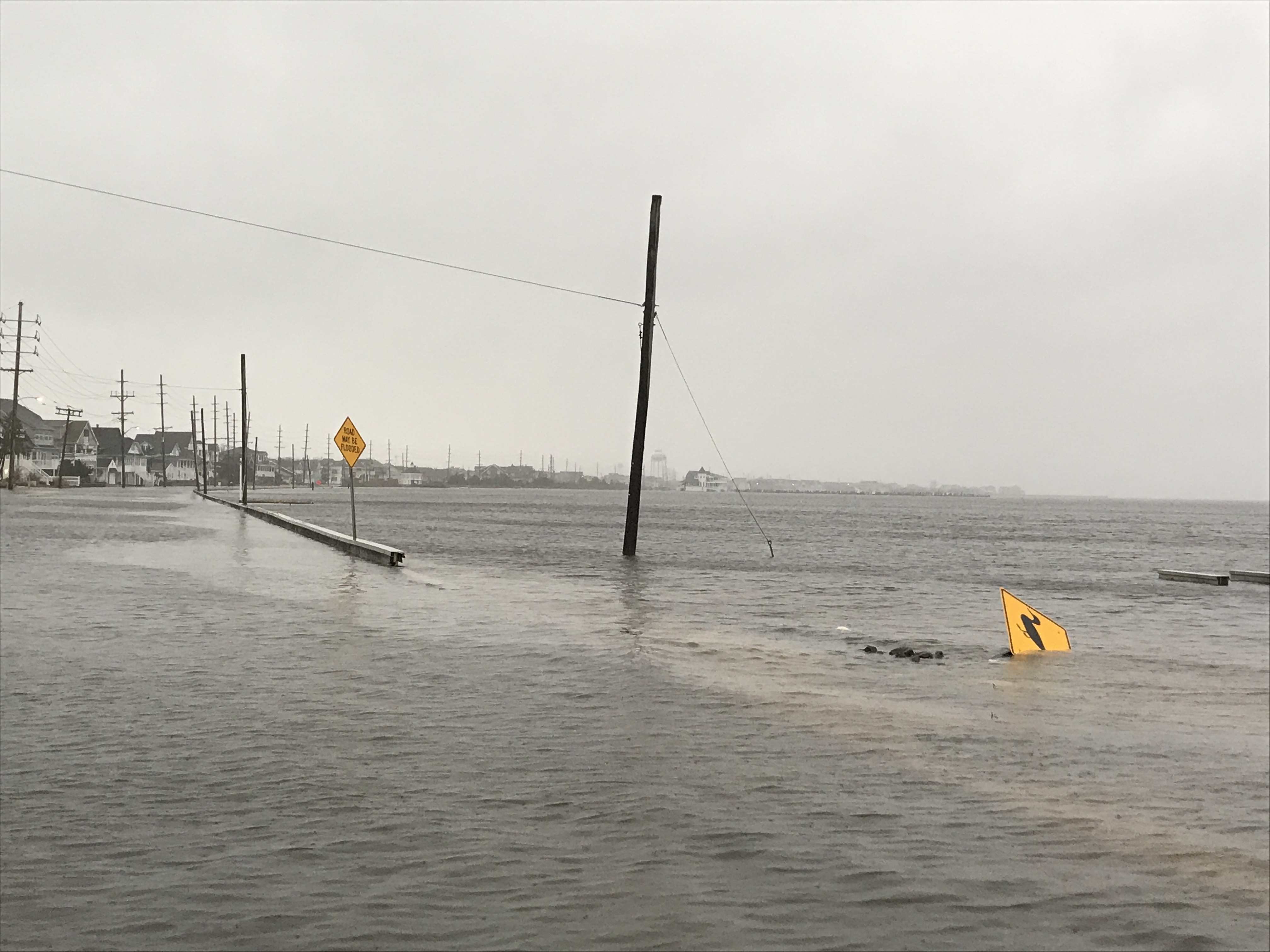New Jersey officials on Monday announced the proposal of an ambitious plan to permanently preserve 1,000 acres of the former Ciba-Geigy chemical plant, which would be turned into a public park with passive recreation.
The state Department of Environmental Protection formally opened a month-long public comment period on the plan, which would tap funds from a negotiated settlement with BASF Corporation – which inherited the Ciba-Geigy property through several corporate mergers – to turn the Toms River Superfund site into a unique habitat restoration project that would include wide public access components.
The proposed settlement is the largest single-site preservation agreement achieved through the Department of Environmental Protection’s Natural Resource Damages program. Under the proposal, approximately 1,000 acres would be permanently preserved, with hundreds of additional acres to be restored through a variety of ecological improvement projects.
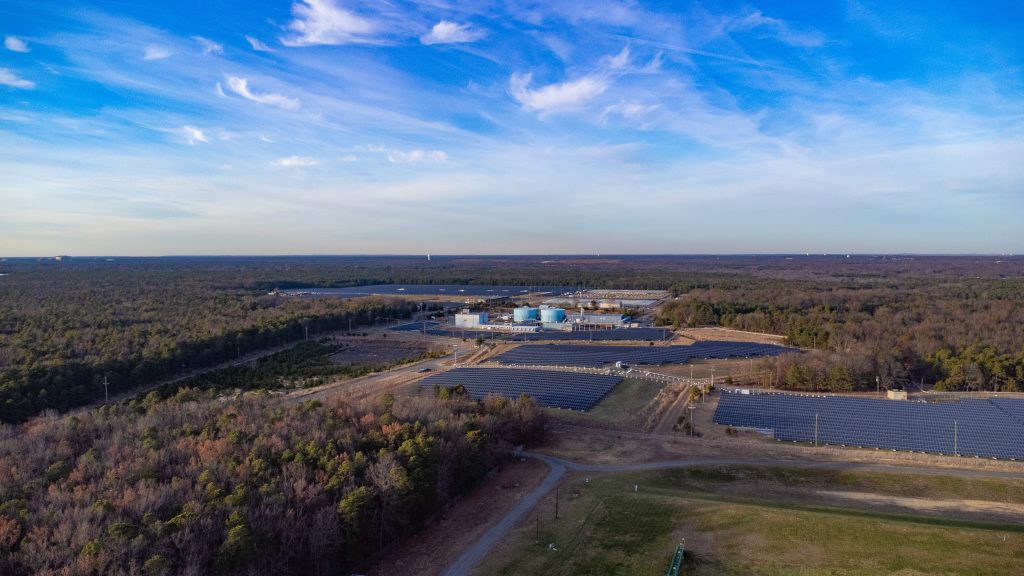
An aerial view of the former Ciba-Geigy chemical site, Toms River, N.J., Dec. 5, 2022. (Photo: Daniel Nee)
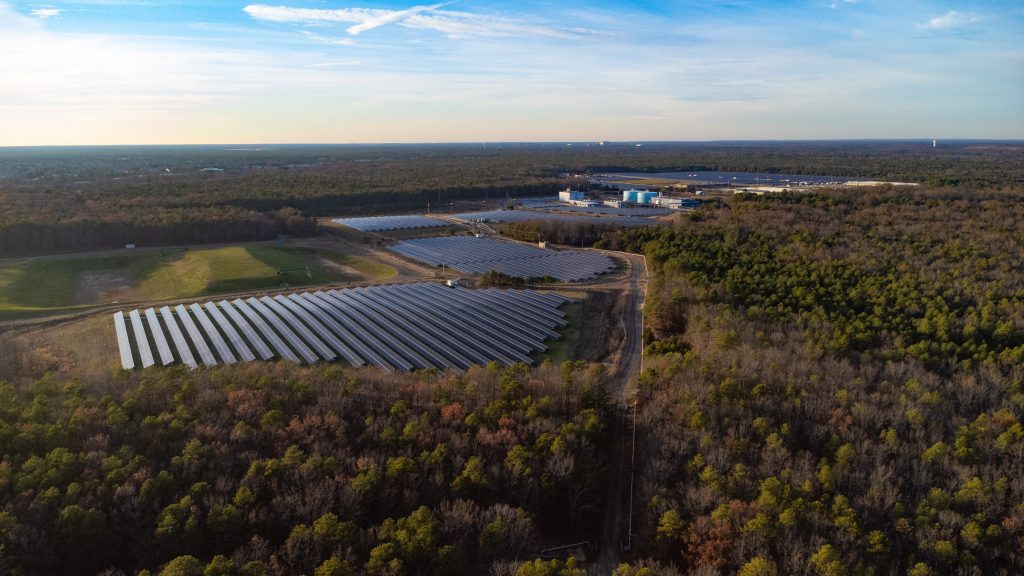
An aerial view of the former Ciba-Geigy chemical site, Toms River, N.J., Dec. 5, 2022. (Photo: Daniel Nee)
Officials said, if approved, the settlement could lead to construction on the project within months – predicting a spring 2023 start date. As proposed, the site would feature public access, passive recreation, and natural resource interpretative and educational opportunities. The ecological restoration would include the creation of a freshwater wetlands complex, restoration of riparian areas, flood plain and wetland enhancements, creation of upland grasslands and pollinator habitat, public access trails and boardwalks for wildlife viewing and passive recreation.
In addition to walking, running and hiking opportunities for the public, an environmental education center would be constructed to provide natural resource interpretation programs for the public. If the project were to break ground next spring, plans call for the property to become open to the public in phases, and be complete within the next five years.
“A true turnaround story, this settlement would transform one of New Jersey’s most notorious polluted sites into one of our biggest environmental success stories—one that delivers the natural resource quality that every community deserves, shoulder-to-shoulder with a good corporate citizen determined to repair the environmental damage of our shared industrial past,” said state DEP Commissioner Shawn M. LaTourette, in a statement. “My sincere thanks to BASF and every partner that contributed to this success for the people of New Jersey.”
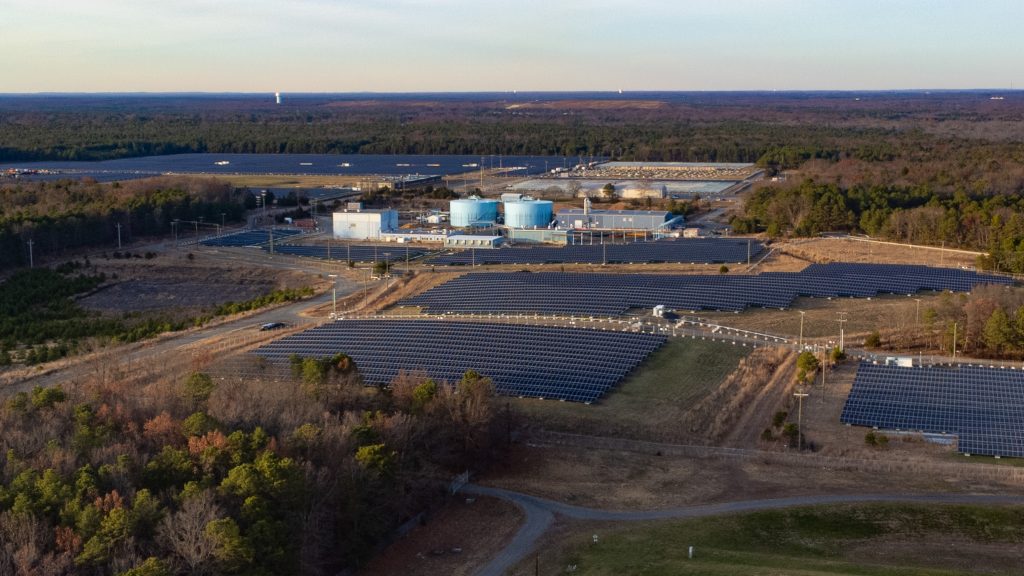
An aerial view of the former Ciba-Geigy chemical site, Toms River, N.J., Dec. 5, 2022. (Photo: Daniel Nee)
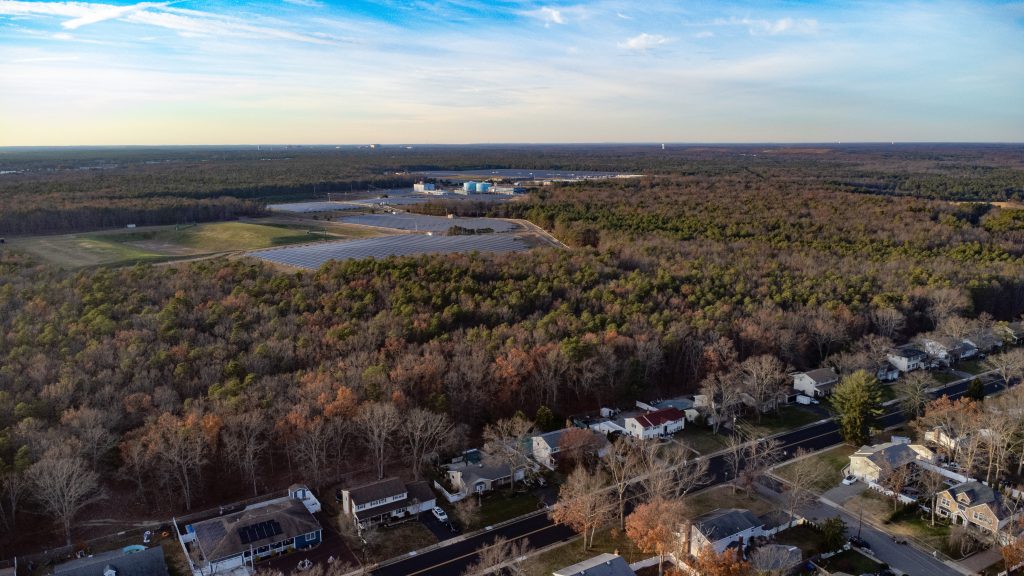
An aerial view of the former Ciba-Geigy chemical site, Toms River, N.J., Dec. 5, 2022. (Photo: Daniel Nee)
For some senior officials at the state agency, seeing the long saga of pollution near the Ciba-Geigy site is personal.
“Having spent my childhood on the other side of the fence from this polluted site, I know what this settlement will mean to the families and children of those neighborhoods,” said Deputy Commissioner of Environmental Protection Sean D. Moriarty, who oversees the DEP team that developed the settlement. “I am proud to have played a small part in transforming a previously forbidden place into somewhere the community can truly connect with nature and appreciate its immense value to health and well-being.”
The Ciba-Geigy plant, located west of the Garden State Parkway and north of Route 37 off Oak Ridge Parkway, manufactured chemical dyes for decades, leading to significant groundwater contamination at the 1,200 acre property. Environmentally-friendly development at the site has already been undertaken in the form of massive solar energy arrays that have been approved to be erected over 117 acres, representing one of the largest of its kind in America. The solar arrays, many of which have already been built, will eventually produce 35 megawatts of power.
BASF Corporation, a German multinational conglomerate, assumed responsibility for the site in 2010 and has been working closely with the DEP’s Office of Natural Resource Restoration for several years to “voluntarily resolve its liability for natural resource injuries through land preservation and the future construction of nine natural resource restoration projects that will include enhancements to wetlands, pollinator grasslands, threatened and endangered species habitats,” the DEP’s statement said.
The proposed preservation area would include a connector to Winding River Park as part of the settlement.
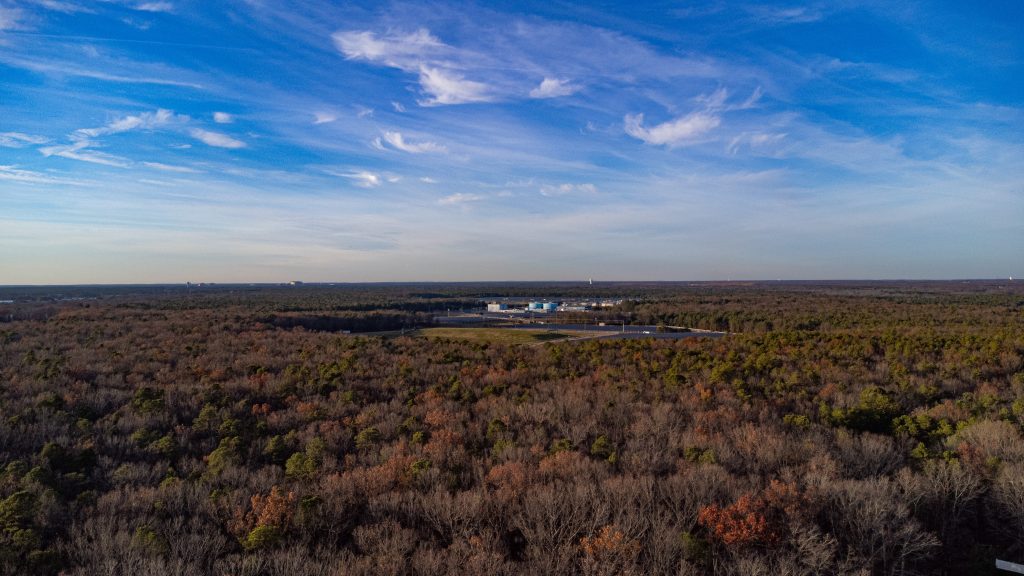
An aerial view of the former Ciba-Geigy chemical site, Toms River, N.J., Dec. 5, 2022. (Photo: Daniel Nee)
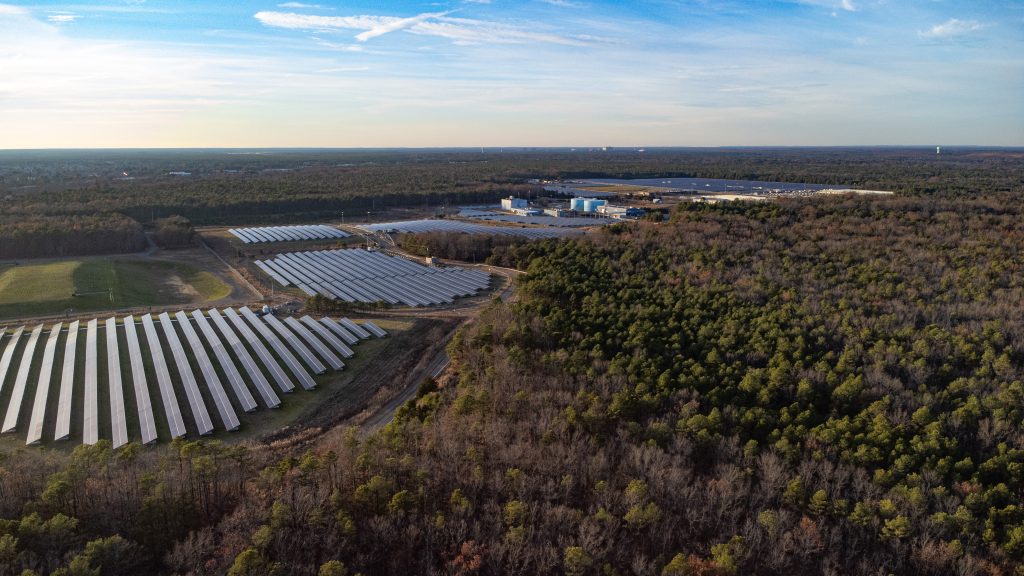
An aerial view of the former Ciba-Geigy chemical site, Toms River, N.J., Dec. 5, 2022. (Photo: Daniel Nee)
BASF took possession of the property after it was already being remediated and never operated chemical manufacturing there. Plant operations ceased in 1990. Remediation activities, including the excavation and capping of contaminated source areas and the pumping and treatment of contaminated groundwater, will continue at the site. The proposed settlement would not have an impact on any of BASF’s remaining obligations under federal government’s lead oversight under Superfund.
The proposed settlement agreement would permanently preserve and protect approximately 1,000 acres of the site in Toms River from future development to offset the groundwater injury tough groundwater aquifer recharge. Of the 1,000 acres to be preserved, approximately 790 acres would be maintained as open space and include restoration projects for ecological uplift, habitat enhancement, and public access. Restoration projects within that space is slated to incorporate hiking trails, birdwatching platforms and blinds, and an educational center and other amenities for public enjoyment. The remaining 210 acres will be set aside for pollinator habitat and additional solar energy production.
A copy of the proposed settlement agreement is embedded below this story. According to DEP officials, over the next 30 days, the agency will accept public comment on the proposal published Monday in the New Jersey Register.
The announcement drew praise from environmental advocates immediately Monday.
“New Jersey Audubon enthusiastically supports this use of Natural Resources Damages [settlement] to create forests and parks in Toms River,” said Alex Ireland, President and CEO of New Jersey Audubon. “Conversion of sites like this into safe, publicly accessible forests and parks should be the model for other similar sites throughout the state, and especially in our urban areas. NJDEP and BASF have worked together to clean up and restore a contaminated area for residents to enjoy. This project is particularly significant in that the funding is going directly back to the community that experienced the damages from contamination.”
Read the Proposed Settlement:

Advertisement

Seaside Heights & Seaside Park
Seaside Heights School Board Seeking More Participation, Will Change Meeting Times

Police, Fire & Courts
Seaside Park Man, 68, Charged in Fatal Crash With Pedestrian
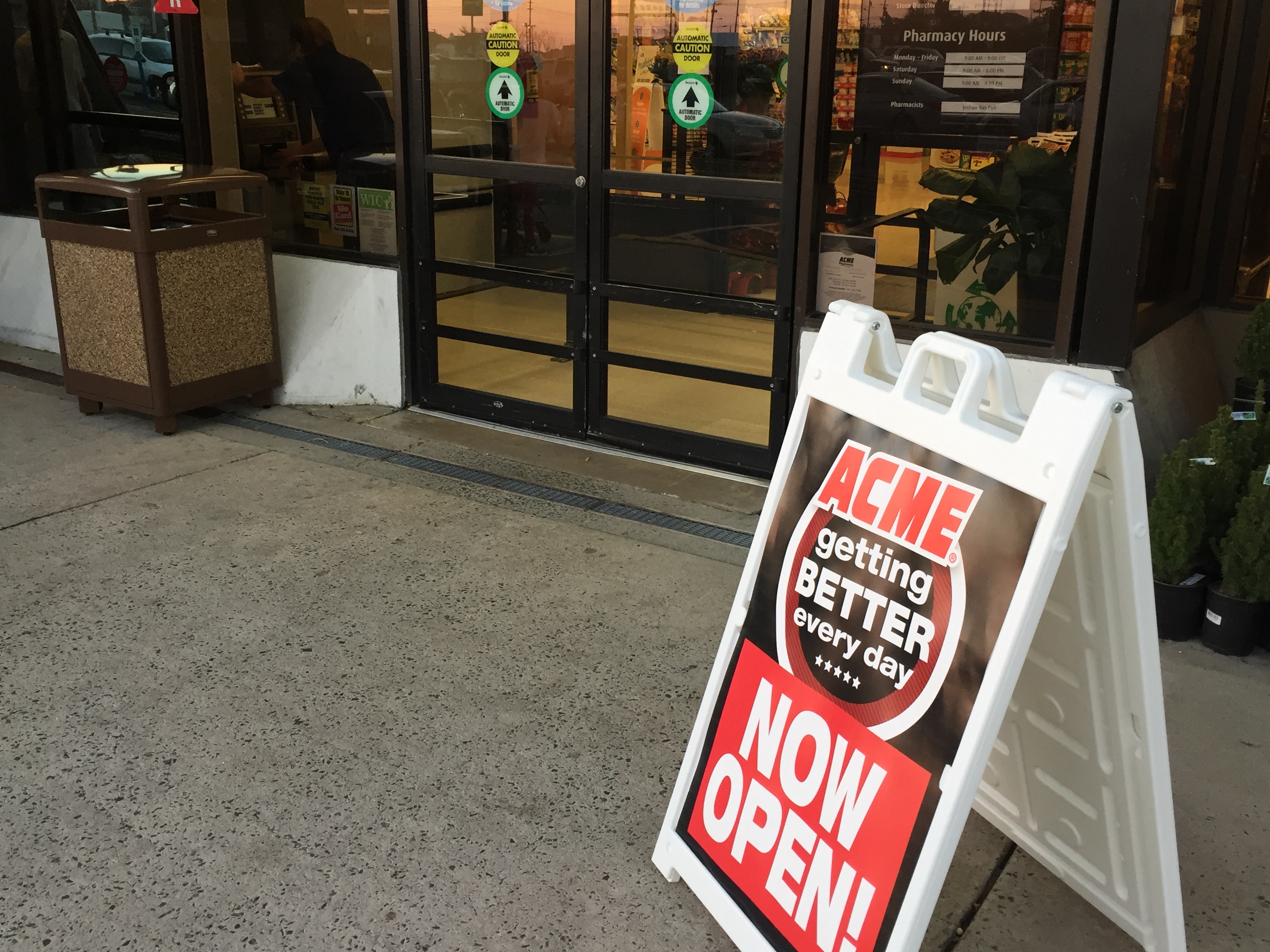
Ortley Beach & North Beaches
Lottery Ticket Worth $10K Sold at Ortley Beach Acme

Ortley Beach & North Beaches
Abandoned Private Island ‘Mansion’ in Barnegat Bay Poised for Demolition





